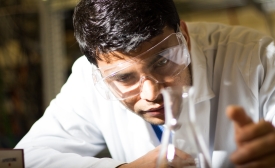science and technology

This new report published by the Canadian Global Affairs Institute explores Canada's renewed focus on the role of science diplomacy in international affairs.
The American Heart Association and China Tuesday formalized a partnership to educate the Chinese about cardiovascular disease and train people in CPR as ways to reduce deaths in the country. The agreement provides for exchanges of researchers, doctors and public health specialists to work alongside counterparts in the U.S. and China. It also provides for teams of scientists to work together to advance scientific knowledge of cardiovascular health.
Taiwan’s Tang Prize Foundation signed a cooperative agreement with U.S.-based Experimental Biology March 31, reaffirming TPF’s commitment to creating learning opportunities worldwide.
The Israeli government will host a gathering of young scientists later this year as part of efforts to improve the image of a state internationally associated with occupation and military brutality. An estimated 400 young scientists from around the world will meet in Jerusalem in August.
Since the end of the Cold War, deepening globalization has generated the possibility that science diplomacy may help states solve common challenges - in the areas of food, water, energy, climate, and health - that do not respect territorial boundaries. Science diplomacy refers to the way in which states make use of scientific knowledge to diplomatically represent themselves and their interests in the international arena.

Insights from the 2010 Science Diplomacy Conference, from sustainable development to countering disease.







